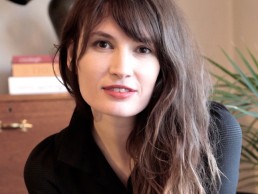
Designers Mind: Protect Your Energy
In the first of a new series of articles from Designers Mind, Founder Kaye Preston discusses the links between our energy levels and our productivity, and how by prioritising our wellbeing we can improve our focus and motivation.
Like many things in life the design industry has two sides: on one it’s an incredible industry filled with passionate, creative minds; on the other it can be a stressful environment with long hours to meet tight deadlines. Often the simplest of wellbeing practices get overlooked, putting a strain on our mental and physical health.
This got me thinking: we know how important our health is yet we still struggle to prioritise it, to make the time.
I admit that through my own journey and experience with burnout I had to change my mindset around wellbeing. It wasn’t until I started learning more about health through my own healing and coaching and I experienced first-hand how connected our physical and mental health are that I understood the importance of prioritising my wellbeing.
Time is often cited as a top reason why many people don’t prioritise their health. But if by putting our wellbeing first we could be more productive, have improved focus and motivation, wouldn’t this actually save us time at work?
Too often health gets slotted in around a long work day, family commitments, our partners, even life admin. What if we flip this around and start with our health instead? Our healthy habits creating the energy we need to show up every day the way we truly want and achieve our goals.
Our energy level really does determine how we show up every day
Prioritising our mental and physical health by incorporating more sleep, eating well, moving more and taking breaks may feel counterintuitive. Surely taking time to spend on ourselves takes away from work? Not in this case. Imagine what we could accomplish if we woke up feeling energised, motivated and ready to take on the day instead of feeling tired, overwhelmed and exhausted from the long day before?
And this brings me to a little secret that I’ve learnt about time.
Time Management = Energy Management
Our energy is actually an excellent measure of our current level of wellbeing and linked to motivation, productivity, focus and creativity.
Let’s start measuring time by quality instead of by quantity. We’ve been conditioned to measure our time by blocks of hours and minutes. And of course, this is useful to a certain extent. But a thought I’ve been pondering lately is if we show up energised our time could be spent very differently than if we’re tired, overwhelmed and stressed out.
An energised hour could mean more quality time for our work in the moment and more quality time for loved ones or other areas of our lives later on. We may think we don’t have time for our wellbeing and sometimes prioritising our health can even feel counterproductive. But taking 15 minutes out to have a break, go for a walk, get some water may mean the next 45 minutes are spent in deep focus, ultimately achieving more than a distracted or tired full 60 minutes.
Our energy levels are affected by our healthy habits, stress, work and relationships.
So, what are some things we can do to protect our energy so we can wake up energised, motivated and ready to take on the day?
Meditation, yoga, sleep, relaxation, exercise, eating whole foods, keeping hydrated, getting outside, connecting with loved ones and setting healthy boundaries are all practices that can help improve our energy levels.
What may be depleting our energy?
Lack of sleep, not taking enough breaks, eating a diet full of processed and sugary foods, not drinking enough water, lack of exercise, toxic relationships, too much time in front of our screens, not enough time in nature, poor time management, lack of boundaries and procrastination.
It’s important to try things out and see what works for you. To discover what gives you energy and what doesn’t.
Steps to protect your energy
Here are some steps to help get you started:
1. Get back to basics with your health by prioritising sleep, food, hydration, exercise, movement and rest.
2. Learn ways to manage your stress by prioritising your health, practicing meditation or getting more time out in nature. Identify your stress triggers and make any possible changes.
3. Think of small steps you could take rather than trying to change everything at once. You’re more likely to be successful creating new healthy habits making small changes consistently over time.
4. Recognise that you may feel differently throughout the day, throughout the month, seasons, or different chapters of your life. As you get better at listening to your body you’ll be better able to identify your needs.
5. Practice compassion and kindness towards yourself. Wellness is a journey. One that needs to adapt and change with you.
6. Acknowledge your accomplishments. When making any changes it’s really important to recognise what went well for you during the day.
7. Be mindful of any self-sabotaging behaviours that may be depleting your energy and derailing you from what you want to achieve. For example, scrolling on your phone first thing, eating that food you know disagrees with you when you have a big deadline, or avoiding starting a big project.
8. Reach out and get support from your friends and family, colleagues or a professional. Set healthy boundaries, learn how to communicate your needs.
Imagine starting your day from a place full of energy? What could you achieve?
By prioritising our physical and mental health we protect and build up our energy. Having more energy optimises our time, allowing for better focus and creativity. We have more energy to design, getting more done in less time, which in turn allows more time for our wellbeing and all areas of our lives (I do love when something goes full circle!).



